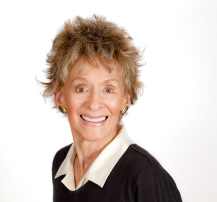

Allan Stewart, an Australian who earned a law degree age 91, recently earned a master’s degree in clinical science at Southern Cross University at age 97 — his fourth degree — 72 years after graduating from the University of Sydney with a degree in dentistry.
He enrolled in his latest course in 2009 and said while it had been a “tremendous challenge” he had enjoyed it immensely and would strongly encourage older people to return to study.
“People should never use the excuse that ‘I am too old to study’ or ‘I have left my run too late’,” he said. “It is never too late to expand your mind, make new friends and challenge yourself to achieve something worthwhile.”
He attributes his accomplishments to good genes.
Yes, genes matter but only 30 percent of how well we age can be attributed to genes. Seventy-percent of how well we age is the result of lifestyle choices.
But here’s the catch: You can make great lifestyle choices during your younger years but when you get to retirement most people do what everybody else does — they succumb to the lure of inactivity and the unfounded belief that it’s time to slow down. They buy into the “you earned your retirement” mantra that pushes many healthy individuals into inactivity or passing time with “staying busy” activities that do not challenge the brain or body. Inevitable decline takes place and blame is put on genes.
Naysayers insist advanced study for older people is a waste of time and money. After all, “what would they do with another degree?”
We need to change how we think about old age and old people and what they are capable of accomplishing. We need to rethink the “you deserve your retirement” mantra. We need to challenge our own human nature that prefers leisure to effort.
I acknowledge and respect different strokes for different folks. Live your life the way you choose. But as a society we need to wake up to the reality that for many, traditional do-nothing retirement is a ticket to decline. Healthy older people need encouragement to stay engaged and helped to unleash their latent potential, not just for their benefit, but for the welfare of sociaty. Educating older people is less expensive than paying astronomical health care costs resulting from a passive lifestyle that induces decline. #
I love Put Old on Hold (and Barbara) for trying to change the cultural norm which says if you’re over 65, it’s time for you to stagnate.
I agree we must continue to learn and grow no matter our age. However pursuing a degree is not the only way. For the many who still need an income, it may not even be an option. But learning online, learning by doing, and learning by self study are options for all.
I’ve also heard it said that we older folks should stop working to make room for the young folks who have family to support. But in economics 101, I learned the law of Comparative Advantage.
Breaking it down to the smallest economic entity, every person should produce what they are best at (produce at the lowest marginal cost). More is produced for everyone. More people are gainfully employed in total.
There is so much to learn and do and telling ourselves we’re “too old” is just plain baloney. So many wonderful things have come from experienced minds on fire with what they were interested in.
Good for you for finishing what you started. You paycheck may not have benefited, but your brain undoubtedly benefited.
I will ‘back up’ my vote by sharing that TODAY I am erolling for online classes toward a B.A. Degree. I will ENJOY this, it will keep my mind active plus giving me something to look forward to…the days can get long as one nears 82 and I want to have a goal for those days. This will upgrade my A.A. in Journalism that I earned in 1978, after my youngest entered Kindergarten.
Good for you Lura! This newsletter goes to “senior” communities– I hope those who think playing bingo is the best they can do with their mind will be inspired to follow your example. You are a great role model!